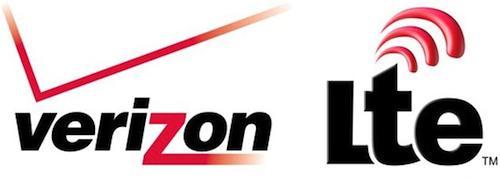
If you've been contemplating boarding the Verizon train lately (or already have), you might be interested to know what's in store for the future. Back in August of 2009, Verizon began field trials of their LTE (read: 4G) network in two US test markets and just recently posted their results.
Peak Results
"Trials in Boston and Seattle indicate the network is capable of peak download speeds of 40 to 50 megabits per second (Mbps) and peak upload speeds of 20 to 25 Mbps. The speeds are significantly faster than Verizon Wireless and other wireless providers’ current or promised 3G network speeds."
Realistic Results
"Verizon Wireless engineers report LTE average data rates of 5-12 Mbps on the downlink and 2-5 Mbps on the uplink in real-world environments and will offer Verizon Wireless customers mobile browsing speeds comparable to customers’ current, typical online Internet experience."
As you might assume, companies will often "talk up" their high speeds, great products, and great service with what often results in delusions of grandeur. When they announce that tests have exceeded their expectations, however, you tend to take notice. Verizon's Jeffrey Nelson did just that in a phone conversation recently, stating that their network tests were “faster than we’ve ever suggested," and that their "network team is shocked."
Unfortunately, unless you live in Boston or Seattle, you are currently unable to experience these high speeds (and even if you did there's not a phone out there capable of fully utilizing LTE, to my knowledge). However, the good news is that Verizon plans on bringing LTE to your doorstep by the end of the year.
“Our LTE rollout plan positions Verizon Wireless to be a global leader in 4G LTE deployment. We are on track to deliver an outstanding wireless data experience to customers in 25 to 30 markets covering roughly 100 million people by year’s end,” said Tony Melone, senior vice president and chief technical officer at Verizon Wireless.
It looks like Verizon will be gradually ushering in LTE throughout the rest of the year, and I'm hoping for a leaked roadmap and 4G capable phones to come soon! Who's excited about 4G on Big Red? Sound off in the comments!
For the nitty gritty, see the press release below.
Verizon Wireless’ 4G LTE Network Testing Promises Significantly Faster Speeds Than Current 3G Networks
Available to 100 Million Americans in 25 to 30 U.S. Markets by End of 2010
BASKING RIDGE, NJ — Verizon Wireless announced today that its 4G Long Term Evolution (LTE) network field trials in the United States have demonstrated wireless data speeds that are significantly faster than today’s 3G network speeds. Trials in Boston and Seattle indicate the network is capable of peak download speeds of 40 to 50 megabits per second (Mbps) and peak upload speeds of 20 to 25 Mbps. The speeds are significantly faster than Verizon Wireless and other wireless providers’ current or promised 3G network speeds.
Verizon Wireless has been testing its forthcoming 4G LTE network in both Boston and Seattle since August, 2009. Successful data calls involved streaming video, file uploads and downloads, and Web browsing, as well as calls with Voice over Internet Protocol (VoIP) to enable voice transmissions over the LTE network. Verizon Wireless engineers report LTE average data rates of 5-12 Mbps on the downlink and 2-5 Mbps on the uplink in real-world environments and will offer Verizon Wireless customers mobile browsing speeds comparable to customers’ current, typical online Internet experience.
“Our LTE rollout plan positions Verizon Wireless to be a global leader in 4G LTE deployment. We are on track to deliver an outstanding wireless data experience to customers in 25 to 30 markets covering roughly 100 million people by year’s end,” said Tony Melone, senior vice president and chief technical officer at Verizon Wireless. “As device makers, manufacturers and others around the world begin to introduce newer and faster products to take advantage of these incredible new speeds, Verizon Wireless will be positioned to offer our customers new and exciting products on the nation’s first 4G LTE network.”
By leveraging its 700 MHz spectrum for LTE deployment in the United States, Verizon Wireless is capable of quickly deploying a high-quality wireless broadband network with excellent coverage and in-building penetration. Verizon Wireless is currently installing LTE equipment at existing cell sites and switching centers around the United States as part of its extensive, ongoing investment in its voice and data network infrastructure.
Visit www.verizonwireless.com/lte for more information about Verizon Wireless’ 4G LTE network.
Via BGR, Computerworld